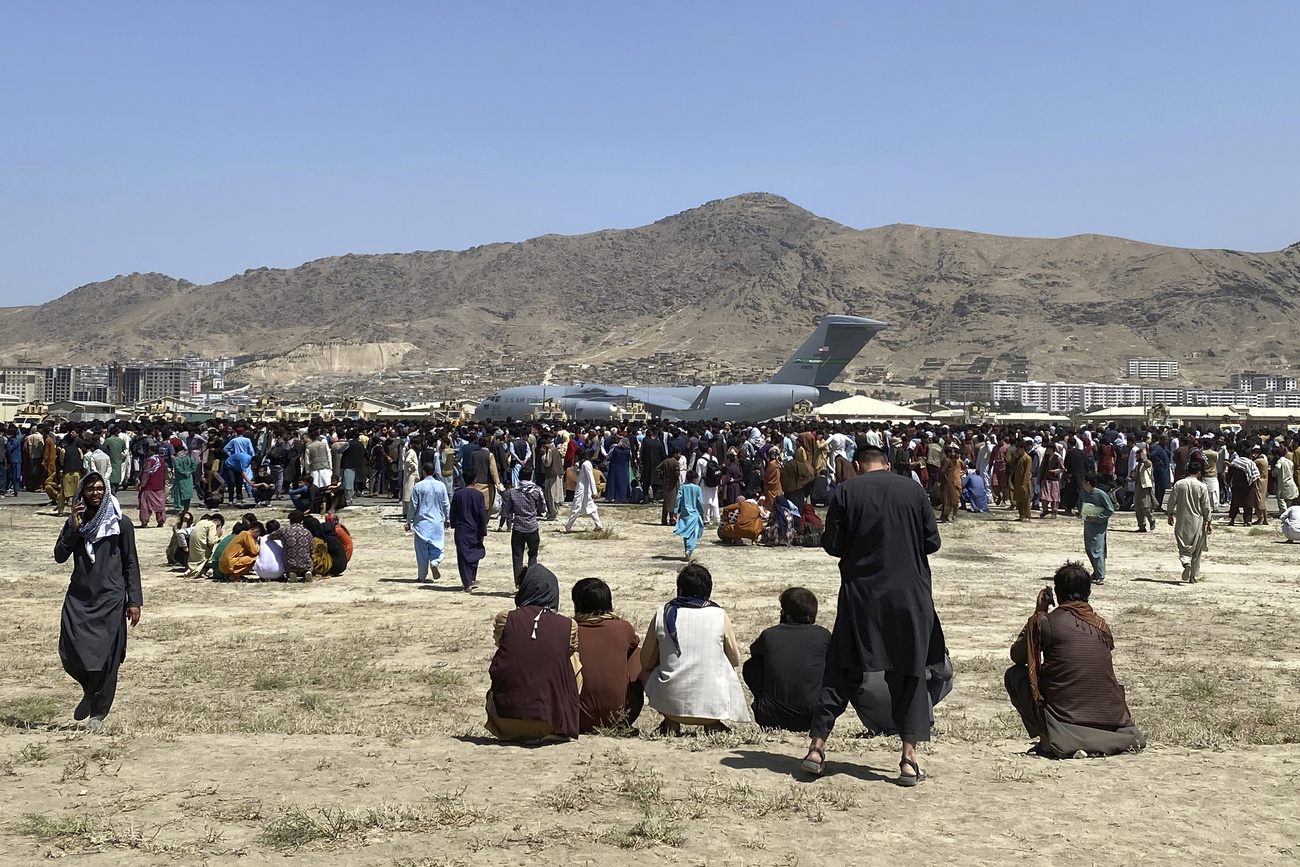
Pressure grows on Switzerland to accept Afghan refugees

Several Swiss cities have added their voice to growing demands for Switzerland to open its doors to refugees from Afghanistan.
On Wednesday, government ministers said they were concentrating on evacuating Swiss nationals and around 230 locals who worked on Swiss projects in Afghanistan, together with their relatives.
Justice Minister Karin Keller-Sutter did not rule out accepting more refugees in future but said there are no immediate plans to loosen normal asylum procedures for Afghan refugees.
This policy has already been criticised by refugee groups and left-leaning political parties. Now the cities of Geneva, Zurich and Bern have called on the government to re-think its stance.
“Switzerland cannot stand by. We should take in more refugees directly from Afghanistan,” Geneva city president Frédérique Perler told Swiss public broadcaster SRF.
“We all see the pictures, we hear the news from Afghanistan, and we are very worried. We think it is time for the Federal Council to act,” said Alec von Graffenried, mayor of the Swiss capital, Bern.
“This is specifically about maintaining Switzerland’s humanitarian tradition,” added Zurich city councillor Raphael Golta.
Earlier this year, eight Swiss cities joined calls to accept refugees from Greece following a fire that tore through the Moria camp on the island of Lesbos in September. This demand was rejected at the time by the federal migration office.
The unexpected speed of the Taliban’s takeover of Afghanistan has left many countries grappling with how to deal with an expected flood of refugees from the war-torn country.
In Europe, the initial response has been mixed. For example, Britain says it will accept up to 20,000 refugees, while Greece fears it may be overwhelmed by large numbers of people migrating through Turkey.

In compliance with the JTI standards
More: SWI swissinfo.ch certified by the Journalism Trust Initiative





























You can find an overview of ongoing debates with our journalists here . Please join us!
If you want to start a conversation about a topic raised in this article or want to report factual errors, email us at english@swissinfo.ch.